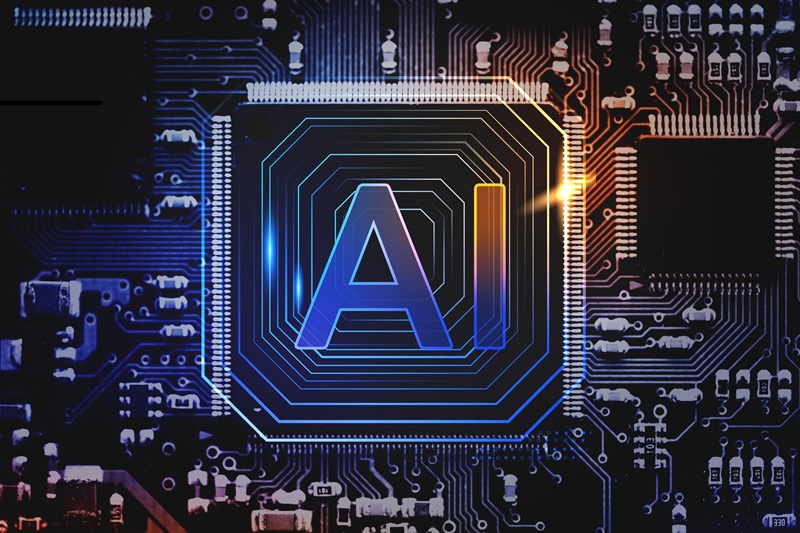Artificial Intelligence (AI) and Machine Learning (ML) are emerging as the engines of innovation for businesses of all sizes. As we edge closer to 2025, these technologies are reshaping industries, unlocking new possibilities for small and medium enterprises (SMEs) and empowering large enterprises to outpace competitors. From hyper-personalized customer experiences to AI-augmented workforces, the trends in AI/ML product strategies are not just shaping the future – they are defining it.
Here’s a look at how these game-changing developments are driving growth, efficiency, and innovation across the business spectrum.
Democratization of AI – One of the most significant trends for 2025 is the growing democratization of AI. AI-powered tools are no longer exclusive to enterprises with deep pockets. According to Gartner, by 2025, 70% of organizations will have AI-integrated operations at some level, up from 50% in 2023. Organizations that were often constrained by resources, are increasingly accessing affordable AI solutions and leveraging platforms that offer plug-and-play AI capabilities. Companies like Microsoft, AWS, and Google Cloud are rolling out cost-effective, scalable AI products tailored for smaller businesses.
Hyper-Personalization Across Industries – The demand for hyper-personalization in customer engagement is driving AI/ML adoption. 65% of customers expect brands to understand their needs and preferences, as reported by Salesforce’s State of the Connected Customer 2024. AI and ML helps businesses deliver tailored experiences, from personalized marketing emails to dynamic product recommendations. For enterprises, this translates to higher customer retention and loyalty, while SMEs gain a competitive edge in crowded markets.
AI Ethics and Governance as a Cornerstone – In 2025, ethical AI will no longer be optional. Governments and enterprises are enforcing stricter guidelines on AI governance. A recent study predicts that more companies will have dedicated AI ethics teams by 2025, compared to 2020. Both SMEs and enterprises must incorporate ethical frameworks into their AI/ML strategies to ensure compliance and maintain trust among stakeholders.
No-Code and Low-Code AI Platforms – The rise of no-code and low-code platforms is empowering non-technical teams to develop AI solutions. By 2025, 70% of AI applications will be built using no-code/low-code platforms. Many SMEs in India struggle to access advanced technologies due to a lack of skilled talent and limited budgets. This trend significantly reduces the barrier to entry for SMEs and enhances innovation speed for enterprises, allowing rapid prototyping and deployment of AI-driven solutions.
Edge AI for Real-Time Decision-Making – With the proliferation of IoT devices, Edge AI is emerging as a game-changer. Gartner estimates that by 2025, 50% of new IoT solutions will use AI on the edge, up from 20% in 2022. Enterprises benefit from faster and lower latency, crucial for mission-critical applications. SMEs in manufacturing, logistics, and retail are leveraging Edge AI for real-time insights, improving operational efficiency.
AI-Powered Cybersecurity – As cyber threats grow in sophistication, AI-driven security solutions are becoming a must-have. A recent report by Grandview Research estimates that the global market for AI in cybersecurity was valued at USD 25.35 billion in 2024 and is projected to grow at a compound annual growth rate (CAGR) of 24.4% from 2025 to 2030. AI/ML systems help detect threats facilitating faster incident responses, and minimize vulnerabilities, making them indispensable for enterprises and SMEs alike.
AI in Workforce Augmentation – Contrary to fears of job displacement, AI is being used to augment the workforce. 60% of jobs will involve AI augmentation by 2025, according to the World Economic Forum. AI tools are freeing employees from repetitive tasks helping them to focus on higher-value activities, while predictive analytics supports strategic decision-making across industries.
Responsible AI as a Strategic Imperative – Responsible AI (RAI) is reshaping product strategies by prioritizing fairness, transparency, and trust. Survey data reveals that key benefits of RAI include enhanced customer experience (41%), improved cybersecurity and risk management (40%), and facilitated innovation (39%). By minimizing mistakes and accelerating success, RAI helps businesses align with ethical standards and build stakeholder trust. For 2025, SMEs and enterprises must embed RAI practices to drive innovation, ensure compliance, and maintain a competitive edge in the AI-driven market.
In conclusion, as AI and ML evolve, integrating these technologies into product strategies is becoming essential for business success. SMEs can leverage affordable, scalable solutions to remain competitive, while enterprises focus on driving innovation and sustainable growth.
Embracing key trends like no-code platforms, Edge AI, and responsible AI practices ensures businesses can innovate ethically, build stakeholder trust, and reduce risks. By aligning with these advancements, organizations can stay competitive, foster meaningful change, and position themselves for success in 2025 and beyond. The future of AI/ML is bright, and the time to prepare for 2025 is now.










